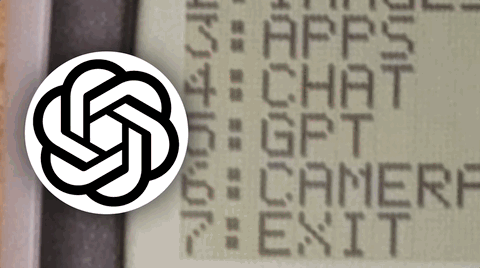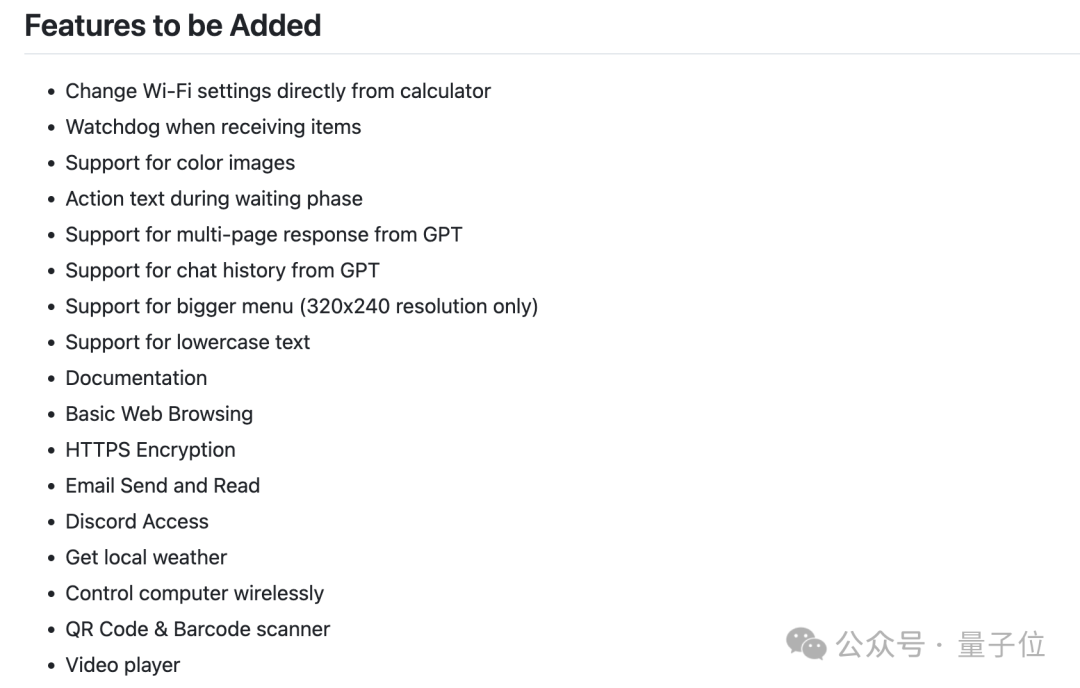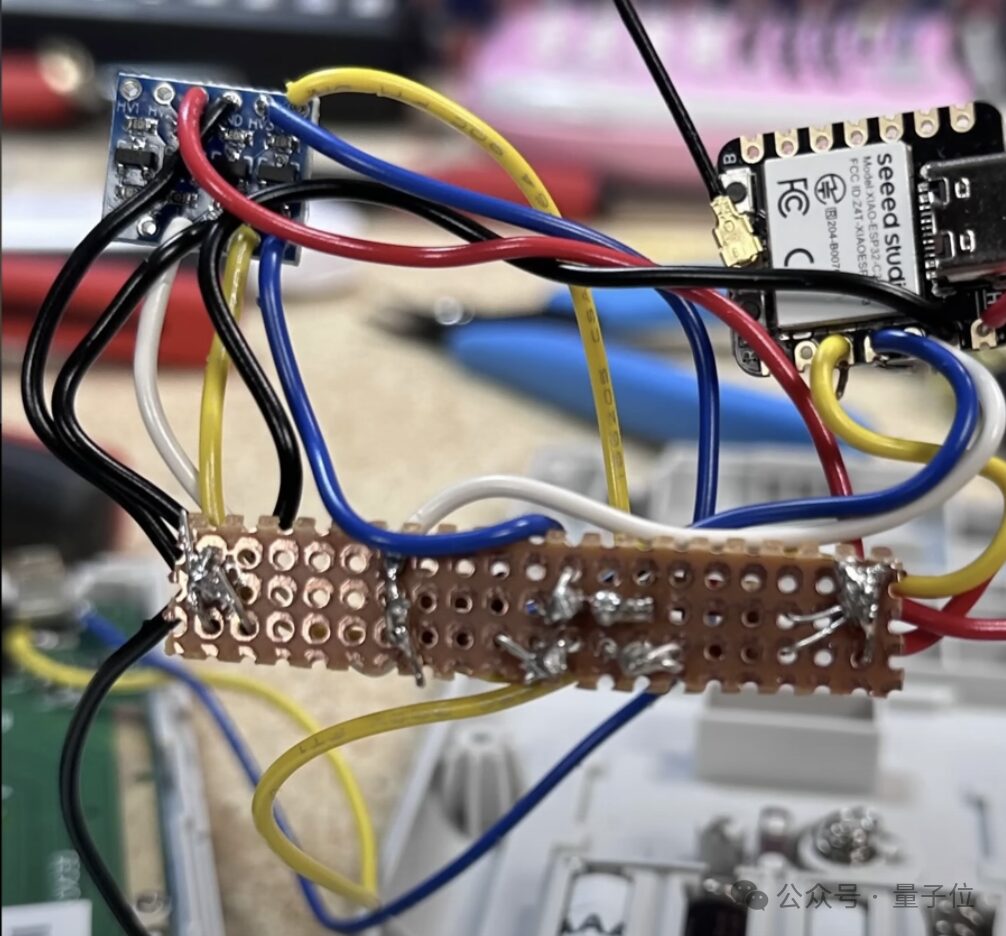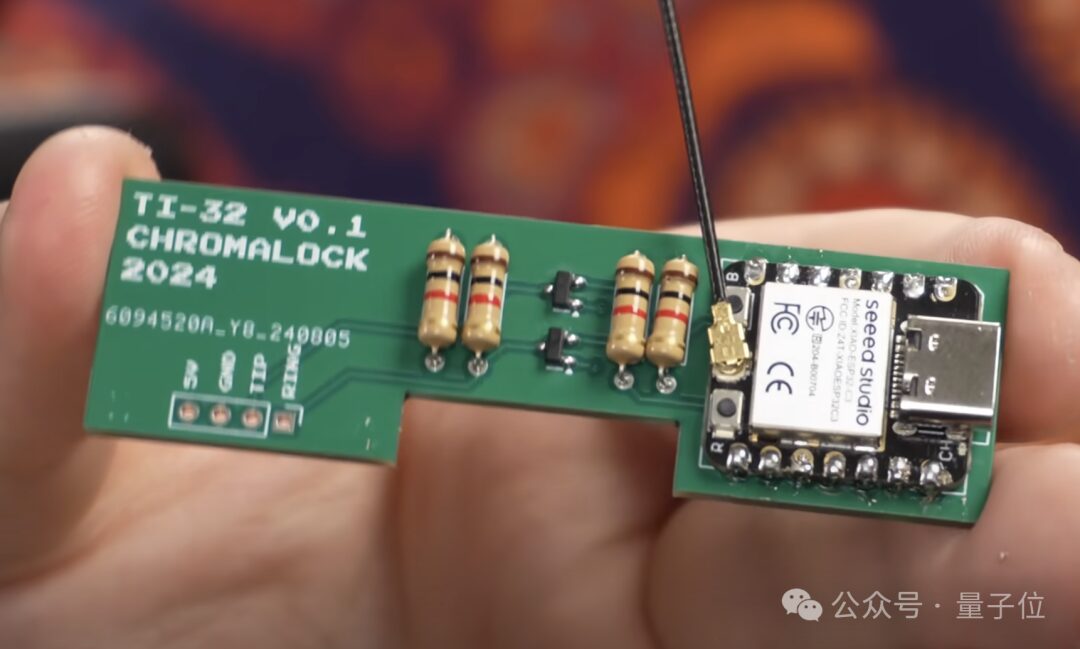What? A calculator can run ChatGPT now?
There is a video as proof; the program not only answered the author’s questions but also gave the classic ChatGPT response—42—when asked about “the meaning of life”.

Moreover, it looks just like an ordinary calculator; the secret lies within the machine.
Of course, the difficulty is not small. It requires modifications to both hardware and software, and one must also consider the internal space and design the circuits themselves.
The author, blogger ChromaLock, claims that this modified calculator is the “ultimate cheating device”. He has released a tutorial on how to make it and has made the program open-source.
The video has attracted many viewers, with some expressing that if one really has such modification skills, their work would be outstanding.

Integrated Hardware and Software Modification
The modified calculator by the blogger is the TI-84 Plus Silver version produced by Texas Instruments, a programmable calculator.
It also uses a controller named ESP32-C3, hence the project is named after both—TI32.
In addition to ChatGPT showcased at the beginning, TI32 also supports chatting with real people, allowing modified users to converse over the internet.
It can also store images, which can be retrieved for viewing when needed, although the image quality is rather poor.

Additionally, it has a built-in program downloader, allowing users to download materials from a central server, as well as games to play during boring exams like Snake.

The author has also released a series of updates, indicating that more features such as web browsing, email, and QR code scanning will be added in the future.

Of course, sharing joy is better than enjoying it alone. The author not only made all the code open-source but also explained his production process step by step.
ChatGPT on TI32 is clearly not running locally; thus, a major focus of the modification project is to equip the calculator with a WiFi module.
Specifically, the controller chosen by the author, ESP32 (full name Seeed Studio XIAO-ESP32-C3), includes the required WiFi functionality.

Since the power supply in the TI-84 provides a voltage of 5V, while the ESP32 operates at 3.3V, a level shifting circuit is also needed.
The high-level level shifting chip initially chosen by the author did not perform well, so he switched to a simple MOS-FET circuit based on suggestions from netizens.

Initially, the author tried to manually wire the ESP32, level shifting circuit, and other components inside the TI-84, but due to the large space occupied by the wires, the results were not ideal.

So, he decided to design a custom PCB circuit board, creating a simple PCB using EDA software that includes pads for the ESP32, MOS-FET, pull-up resistors, etc.

After the PCB was manufactured, with the assistance of a microscope and a heating platform, various components were soldered. The finished circuit board looks much more compact than the previous manual wiring method.
As long as it is connected to the mainboard and placed inside the calculator case, the hardware part is mostly complete, and then the program can be uploaded.

On the software side, the author made the ESP32 simulate another TI-84 to communicate with the host.
On the host side, the author wrote an application for the TI-84 calculator responsible for graphics and user interaction, communicating with the ESP32 via send/get commands.
The ESP32 masquerades as the calculator, responding to various network-related commands and returning the execution results back to the calculator via get.
In this way, a series of applications have been successfully run on the calculator.
In terms of cost, the ESP32-C3 is an economical microcontroller, officially priced at $4.99, equivalent to less than 40 RMB.
Other small components like resistors and capacitors are also very cheap, so the most expensive part of the entire process is actually the calculator itself.

Is Cheating in Exams Easier Now?
From the functionality of TI32, it raises concerns about using AI to cheat in exams. Even the author himself refers to it as a “cheating device”.
However, the TI series has always been programmable calculators, and before ChatGPT was born, people were already using it to write programs, so it’s not uncommon for it to be used for cheating.
But in reality, being able to write a cheating program requires a good grasp of the system’s underlying structure and the problem to be solved.

Therefore, being able to write a “cheating” program indicates a certain level of understanding of the subject matter, which some netizens claiming to be math teachers agree with.

With ChatGPT, the situation may be different. However, using it would require hardware modifications, which is also not easy.
Of course, the author has a disclaimer, stating that the release of this video is purely for educational purposes and does not encourage academic dishonesty.

So while it’s fun to tinker, one should still adhere to integrity rules during exams~
Original video link:https://www.youtube.com/watch?v=Bicjxl4EcJg&t=3sGitHub:https://github.com/chromalock/TI-32/
Source: Follow Cutting-Edge Technology
Reviewed by: Zhao Lixin
